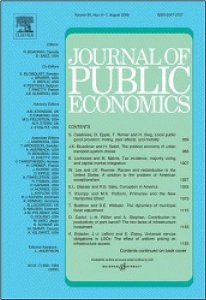
Denter, P. and Sisak, D. (2015). Do Polls Create Momentum in Political Competition? Journal of Public Economics, 130(October):1--14.
-
Affiliated author
-
Publication year2015
-
JournalJournal of Public Economics
We explore how public opinion polls affect candidates' campaign spending in political competition. Generally, polls lead to (more) asymmetric behavior. Under a majority rule, there always exists an equilibrium in which the initially more popular candidate invests more in the campaign and thereby increases her lead in expectation: polls create momentum. When campaigning is very effective and the race is very close, a second type of equilibrium may exist: The trailing candidate outspends and overtakes his opponent. Regardless of the type of equilibrium, polls have a tendency to decrease expected total campaigning expenditures by amplifying ex-ante asymmetries between candidates and thus defusing competition. When candidates care also for their vote share in addition to having the majority, candidates' incentives crucially depend on the distribution of voters' candidate preferences.